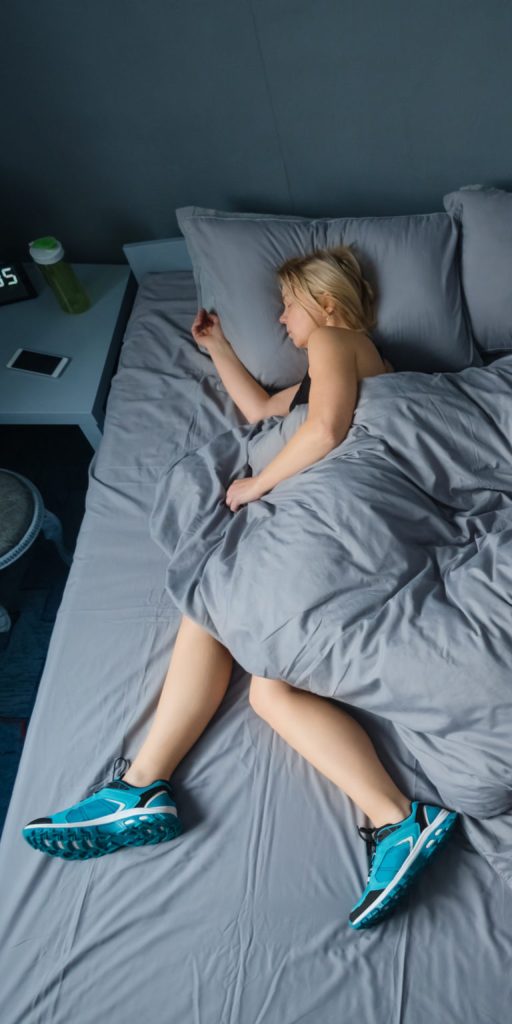Nearly half of the world’s population suffers from sleep disorders due to various causes such as stress and unhealthy lifestyles, which affect the proper functioning of the cardiovascular system and cognitive abilities.
Preparing for sleep?
The hectic pace of life and the intensity with which we engage in our daily activities cannot fail to take its toll on us, both physically and emotionally.
The end of an ordinary day finds you in the midst of your family, busy with domestic chores but exhausted after your job has taken the lion’s share of your daily routine.
Practically, the second job starts from the moment you get home and have to perform the usual tasks of maintaining the house, preparing food and taking care of the children.
Beyond these activities, labelled “MUST”, you remain YOU, the most important person in your life and of course you also take time for your little pleasures.
Most of the time, social media takes up most of your personal time. New posts on Facebook, glamorous photos posted on Instagram and fancy filtered videos on TikTok, lure you in front of the screen for a chunk of time that you no longer control.
Without realising it, you reach the end of the day, close to the moment when you have to completely wrap up and go to bed, but sleep doesn’t make an appearance.

Many of the things you’ve done during the day have brought you to this point, almost without you realising it, and it would be good to recap what you’ve been doing all day to identify some of the causes of insomnia.
Exposure to technology is one of the main causes. The light emitted by screens affects the levels of melatonin, the sleep hormone produced by the human brain as darkness falls until midnight. That’s why doctors recommend avoiding technology a few hours before bedtime to get a restful night’s sleep. It’s not for nothing that people should go to bed when the sun goes down and wake up at dawn.
Stress, an overactive mind and alert thoughts prevent the early stages of sleep and even affect the quality of sleep once it starts.
Beyond these causes, which stem from our daily choices, medical issues cannot be ignored, as a whole range of conditions can affect your night’s rest.
Sleep help

Whilst medical problems can be solved with the help of your doctor, the issues surrounding your daily choices are your own responsibility.
Learn to manage stress and try to think that every situation has a solution so that the storm of thoughts subsides as you approach bedtime. Reserve your night for rest.
Choose curtains to keep out the night light, ensure quiet and set an appropriate temperature in your bedroom, as the sleeping environment is a factor that favours rest.
Build in a routine that allows you to relax before bedtime and avoid using technology. Even if work tasks are pressing, don’t work late and try not to have tense conversations before going to bed.
As far as possible, try to have a regular sleep schedule so that you go to bed and wake up at the same time every day, even at weekends.
Certain substances in food, such as caffeine, alcohol or sugar, affect the quality of your sleep, so you should avoid consuming them before bedtime.
But sleep problems could have a completely different cause that you may not have realised. There’s plenty of evidence that magnesium deficiency could be a cause of insomnia.
Extra magnesium intake in people suffering from insomnia increases the number of hours slept, leads to deep rest and speeds up the production of melatonin, the hormone responsible for regulating sleep.
What’s more, magnesium intake lowers levels of cortisol, the hormone responsible for the body’s stress response.
At the same time, the vitamin B complex helps to reduce the body’s stress levels, as vitamin B6 deficiency causes insomnia, asthenia and nervousness.
Food supplements containing magnesium and vitamin B complex are extremely helpful in relieving insomnia and achieving a state of normality, allowing us to continue our daily routine.